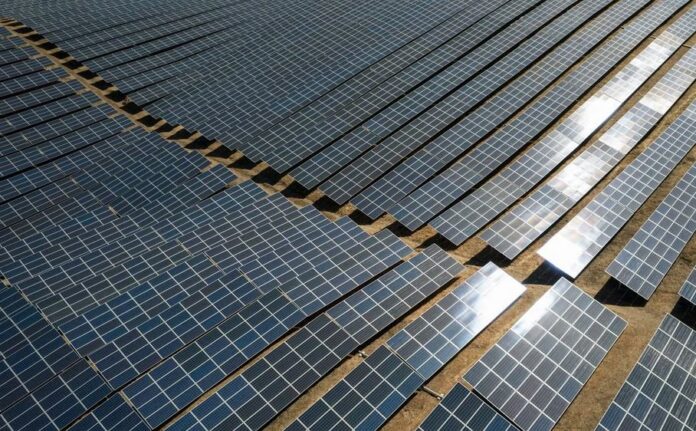Tunisia has just become the first African country to operate a floating power station, which poses as a prototype for the future mega projects of the nation.
Tunisia’s first floating solar station, installed on November 14, 2022, is a 200-kilowatt project near Tunis’ industrial park. As of now, the station has started to function.
With over 300 days of sunshine annually and almost free solar energy, Tunisia is a perfect location for a unique, floating solar station.
The Tunisian government has partnered with the United Arab Emirates to build the first floating solar station in Africa. As expected, the project will generate 2 MW of power for the local area.
Solar stations floating on water can provide energy without creating as much pollution as traditional fossil fuel sources. They convert surface heat into electrical energy, making abundant and renewable power.
Notable Points about the Project:
· The project is a great innovation that comes through the joint of the Tunisian Electricity and Gas Company (STEG) and the French renewable power producer, Qair.
· Installation of the floating power station injects 265MWh of clean energy into the Tunisian Electricity and Gas Company (STEG) network annually.
· The nominal power of the Mena floating solar power plant is a 200-kilowatt peak (kWp), similar to the consumption of 390 people, offering an estimated reduction of up to 120 tons of carbon dioxide (CO²) emissions per year.
· According to developers, the project happened through financial sponsorship of the Fasep grant (Fund for Studies and Aid to the Private Sector), managed by the French Treasury.
· Omar Bey, the executive for the French renewable company, Qair, which operates the 200-kilowatt solar project, said that the project’s originality is utilizing water and reserving the land for agricultural purposes and building homes.
Importance of the Floating Solar Station for Water Resources Conservation
Using floating solar panels contributes significantly to conserving water resources while making the solar panels more energy efficient. It uses relatively little energy to provide the power it needs
Solar panels are a type of renewable energy that is used to generate electricity. They can be on rooftops, ground, or floating structures. Their uses range from powering homes to providing electricity for businesses and industries.
Omar Bey, in his points, highlighted the notable advantages the use of floating solar panels will create as follows;
· Conservation of water resources and ensuring energy efficiency
· Decreasing the level of evaporation, in the case of Tunisia with high water stress, which as a result, allows dams to maintain their reserves of the precious liquid.
The executive of the French renewable company concluded that installing the first floating solar station in Tunisia will help reduce water evaporation in Tunisia and maintain freshwater resources. It is an essential step to ensuring their dams remain intact.
How can the Project Improves Tunisia Power Supply?
Tunisia has involved its citizens in renewable energy efforts for seven years through several programs.
Their country has made significant strides in green energy production this way and is making ambitious plans for the future. Recently in 2021, green sources contributed to 2.8 percent of the country’s energy mix while getting the remaining percentage from natural gas, according to the Africa News website.
Tunisia has a significant potential for solar energy use to meet its energy demands. The country is ranked second in the world for renewable-energy consumption, with hydro and wind accounting for between 3% and 6% of the total electricity consumption.
Tunisia has an installed capacity of 35 megawatts, which is second in the world only to China, but with further development and investments.
Tunisia is on its way to producing 10% of its total energy needs from renewable sources. With a floating solar power project in the south of Tunisia, they are taking their first steps in achieving this goal by implementing a 200-watt system.
Similarly, Morocco, the neighboring country, has a robust renewable energy sector, generating about one-fifth of its power from clean sources. Morocco has an ambitious target to become carbon-neutral by 2050.
Final Words
Although solar power has been a growing industry in recent years, it is still under determination whether this renewable energy will be able to provide power for everyone. As an African country, Tunisia has a lot of sunlight, which is more than enough to carry the project.
The renewable energy power plant launched in Tunisia supplies electricity to more than 50,000 Tunisians, with about 40 wind turbines making it perfect for the country to exploit accessible clean energy.
The Kasbah-based plant is the first in North Africa and is a testament to the region’s commitment to renewable energy; it is installed on a former phosphate mine, making it perfect for conversion into a power plant.


